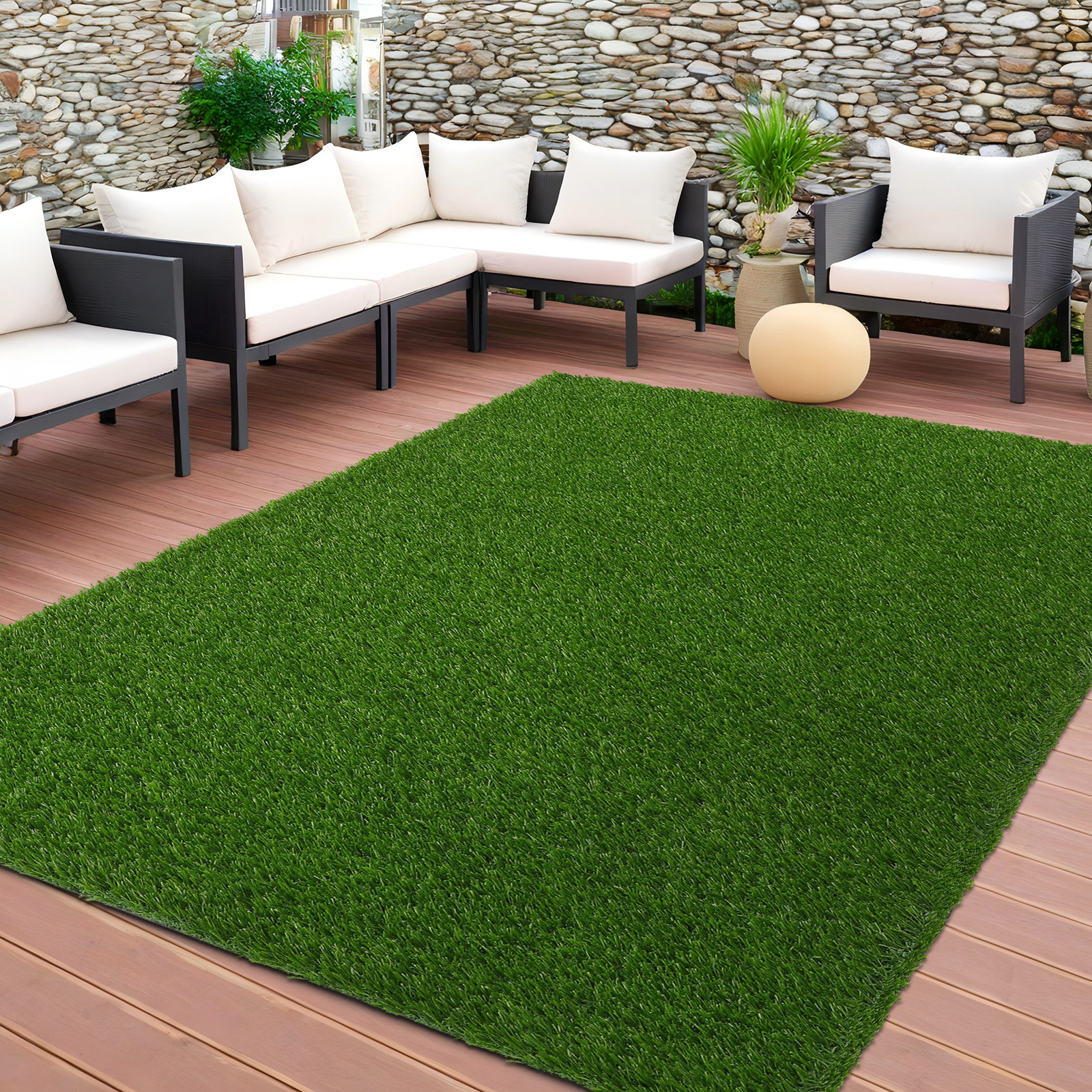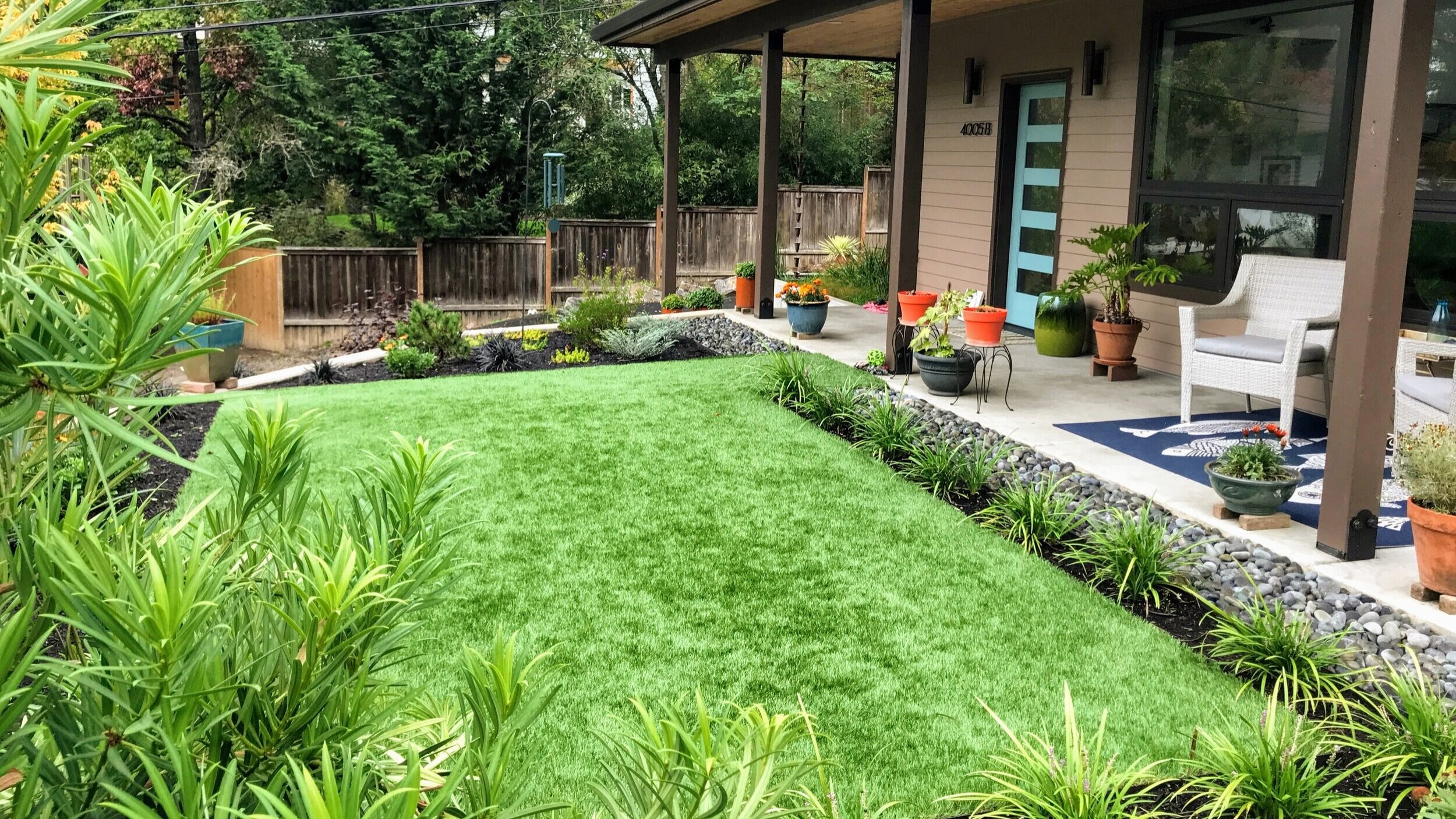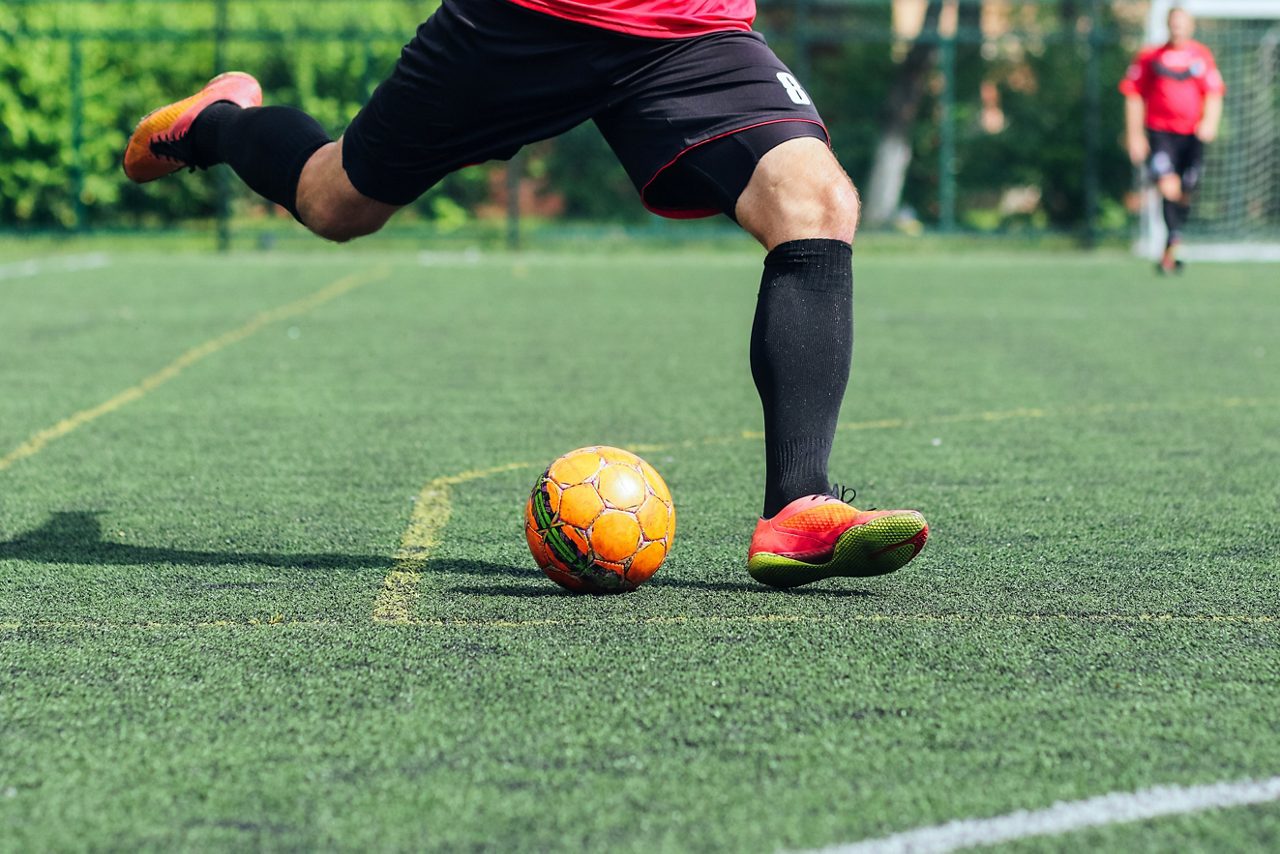Look Into the Environmental Conveniences of Opting for Synthetic Grass Solutions
The fostering of artificial turf services provides an engaging possibility to resolve pressing environmental challenges. By substantially lowering water use and decreasing the application of hazardous chemicals, these options not only promote sustainable landscaping however likewise secure regional ecological communities.
Water Preservation Benefits
One of the most considerable advantages of fabricated grass is its capacity to save water. In contrast, fabricated grass does not need watering, dramatically minimizing the overall need for water sources.
By removing the requirement for normal watering, man-made lawn adds to lasting landscape practices and aids reduce the ecological impact of extreme water intake. Furthermore, the preservation of water encompasses the decrease of drainage, which can result in dirt disintegration and waterway contamination.
Additionally, the setup of synthetic grass enables districts and homeowners to allocate water resources much more successfully, concentrating on essential uses such as drinking water and farming. The change in the direction of synthetic grass not only advertises responsible water usage but likewise lines up with wider ecological objectives intended at maintaining all-natural sources.
As areas increasingly prioritize sustainability, the water conservation benefits of synthetic grass offer an engaging situation for its fostering in business and residential landscaping projects.
Lowered Chemical Use
The change to artificial turf significantly lowers the reliance on chemical treatments generally made use of in all-natural lawn upkeep. Standard grass administration usually includes the application of fertilizers, herbicides, and pesticides to advertise development and control insects. These chemicals can pose threats to human wellness, regional wildlife, and the setting, adding to soil and water contamination.
In contrast, synthetic grass gets rid of the need for these unsafe materials. When installed, it calls for very little maintenance, mostly containing regular cleansing and irregular infill replenishment. This decrease in chemical usage not only profits the immediate setting however also adds to broader eco-friendly stability. By decreasing the release of artificial compounds right into the environment, synthetic lawn promotes much healthier soil and water supply.
Furthermore, the lack of chemical runoff connected with artificial grass installments helps safeguard neighborhood waterways from contamination, sustaining marine life and maintaining biodiversity. Arizona artificial turf. As communities progressively prioritize sustainable methods, selecting synthetic grass provides a sensible solution that aligns with environmental preservation objectives. Via this change, homeowner can enjoy lush eco-friendly rooms without jeopardizing ecological health and wellness, leading the way for a much more lasting future
Reduced Carbon Impact

Additionally, the setup of fabricated lawn can result in substantial water conservation. Natural yards need considerable quantities of water for irrigation, which not just includes to the carbon footprint related to water extraction and treatment however likewise pressures neighborhood water sources. On the other hand, synthetic grass needs minimal maintenance, requiring no watering, thus substantially lowering water use and its associated energy costs.
Additionally, the durability of synthetic grass contributes to its reduced carbon impact. With a lifespan of up to 15 years or even more, the demand for regular replacements is decreased, resulting in less waste and reduced power usage in manufacturing and throwing away standard turf alternatives. Overall, artificial lawn provides a sustainable option for eco mindful landscaping.
Habitat Conservation
Habitat preservation is an essential factor to consider in the dispute over landscaping selections, especially when comparing fabricated lawn to all-natural lawn. Natural yard yards frequently require considerable maintenance, consisting of the usage of herbicides, pesticides, and plant foods, which can negatively affect local ecological communities. These chemicals can seep right into the soil and rivers, harming indigenous flora and animals and disrupting regional environments.
Synthetic grass gets rid of the requirement for unsafe chemicals, therefore protecting nearby wildlife and maintaining the integrity of bordering ecosystems. The installation of fabricated grass can lead to the conversion of former turf areas into even more biodiverse landscapes, such as pollinator yards or indigenous plant locations, which can support local wildlife.
Ultimately, the change to fabricated turf not only conserves water and lowers upkeep initiatives however also fosters an extra unified connection between human activities and the all-natural atmosphere, promoting habitat conservation while doing so.
Long-Term Sustainability
Long-lasting sustainability is a vital consider assessing the advantages of artificial lawn over conventional grass yards. Among the most substantial advantages of synthetic grass is its longevity; it can last as much as 15-20 years with minimal upkeep, whereas natural yard needs frequent reseeding and substitute. This durability lowers the requirement for constant sources, such as water, fertilizers, and chemicals, which are necessary for keeping a healthy and balanced turf yard.
In addition, fabricated grass adds to a decrease in carbon discharges connected with yard treatment equipment. Typical yards often need gas-powered lawn mowers, trimmers, and blowers, every one of which add to air pollution. Arizona artificial turf. On the other hand, artificial lawn eliminates the need for such equipment, More hints promoting a cleaner setting
Moreover, the production of synthetic grass progressively makes use of recycled materials, improving its sustainability account. As manufacturers embrace eco-friendly practices, the ecological impact of artificial turf remains to lessen.

Verdict
The fostering of synthetic lawn options presents substantial environmental benefits, including significant water conservation, lowered reliance on harmful chemicals, and a reduced carbon footprint. Synthetic lawn aids in protecting all-natural habitats by lessening land disruption and promoting long-lasting sustainability via the use of long lasting products. Jointly, these factors highlight the possibility of synthetic grass to add positively to environmental wellness and offer a practical option to traditional landscaping methods in a significantly resource-conscious world.
In contrast, man-made lawn does not require watering, significantly minimizing the total need for water sources. By minimizing the release of synthetic substances right into the ecological community, artificial turf promotes healthier soil and water systems.
Moreover, the setup of fabricated lawn can result in significant water conservation. In contrast, artificial turf needs minimal maintenance, requiring no watering, thereby considerably decreasing water usage and its connected energy costs.

Comments on “Luxury Arizona Turf Installation Solutions for Residences and Commercial Properties”